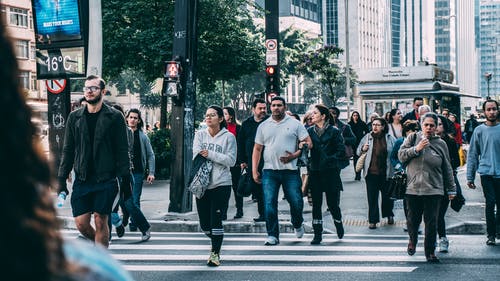Herd Immunity: A False Promise
Herd immunity will not rescue the United States from the COVID-19 pandemic.

PHOTO | Kaique Rocha, Pexels
While herd immunity is an effective solution to combatting the spread of other diseases, it is not the answer to fighting the spread of the COVID-19 pandemic.
The practice of herd immunity is one that has great significance in keeping people safe in our society. Herd immunity is when a large portion of a community becomes immune to a disease, making the spread of disease from person to person unlikely, according to Mayo Clinic. This leads to an entire community being more protected from a disease, not just those who are immune through vaccines or natural infection.
Herd immunity is a significant factor in the vaccination debate, as most anti-vaxxers feel as if as long as others contribute to herd immunity, there is no need to vaccinate themselves or their children. However, in the nature of a global pandemic, even with the rapid production of vaccines, large numbers of immune citizens and mask and social distancing mandates, head immunity is not the solution for navigating the COVID-19 pandemic.
Reupping this. Existing vaccines may well have been unable to get us to the herd immunity threshold before the variants made things harder. Now more unlikely. But if we can identify (hard) and vaccinate (harder) the most vulnerable it will make continued spread less destructive.
— Marc Lipsitch (@mlipsitch) January 31, 2021
Suggestions of herd immunity to combat COVID-19 typically include young and healthy generations promoting an uncontrolled spread, while those at a higher risk stay in isolation until the threshold of immune people is reached. However, COVID-19 is still a generally new virus and its complexities have not yet been completely explored. While the greatest risk for severe illness due to COVID-19 is for those 85 years or older according to the Centers for Disease Control and Protection, this doesn’t mean that those who are young and/or healthy are not at risk. While it’s not as heavily as those at higher risk, a percentage of this group is still getting very sick and dying from COVID-19. With herd immunity, we need a typically nonfatal disease in which both the short and long term side effects are well known, which is not at all the case with COVID-19.
With this being said, herd immunity could be a possibility much later down the line. In order for this to be the case, over 70% of the population would have to be infected or have an up-to-date vaccination every nine months, according to Intermountain Healthcare. This is due to the fact that from what scientists know so far, immunity to COVID-19 lasts between three to nine months, according to Intermountain Healthcare. This makes it virtually impossible to have herd immunity for COVID-19 through transmission of the disease. The most realistic goal for herd immunity would be when the nation sees a widespread distribution of the COVID-19 vaccine.
Until we are able to achieve a nationwide threshold of those who have received the COVID-19 vaccine, the most effective ways to combat the pandemic will continue to be national mask mandates and social-distancing policies. While herd immunity is an effective practice for spreading immunity from other diseases, it would do more harm than good in the case of COVID-19.


